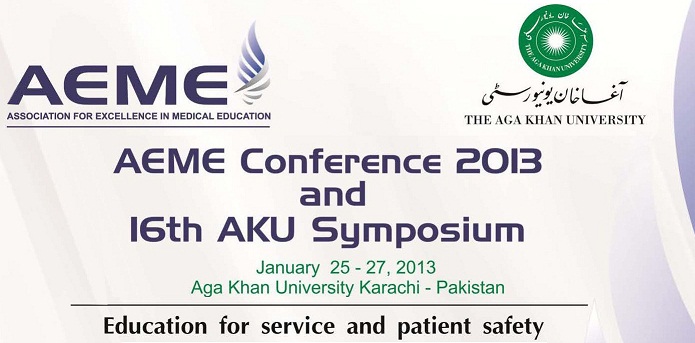Day 1 : Oral Presentations (Theme: Learning Environment)
The 80-hour work week for residents: views from Obstetrics and Gynecology program directors
Location
Lecture Hall 3
Start Date
26-1-2013 4:00 PM
Abstract
Background: In 2003, the ACGME (Accreditation Council for Graduate Medical Education) mandated an 80-hour work week restriction for all residency programs. The objective of this study was to examine the implications this mandate has had on the educational process for residents in Obstetrics and Gynecology (OBGYN).
Methods: Authors developed and administered a 25 question survey to U.S. program directors of OBGYN residency programs from May 6, 2011 to August 6, 2011 utilizing Survey Monkey software. Responses were compared by program location, number of years in practice, number of years as program director, specialty, gender, fellowships offered, type of program, and number or residents per year, using Fisher’s exact test. All p values were two-tailed, and p
Results: Fifty program directors completed the survey with more male participation (62%) than female (38%). When asked if the 80 hour work week restriction had improved, worsened, or made no change in the residency program, 42% (21/50) responded that it had worsened. Significantly more male program directors indicated it had worsened compared to their female counterparts 45% (14/31) vs. 37% (7/19); while more women program directors reported an improvement, 47% (9/19) vs. 16% (5/31); p
Conclusions: Though our sample size was small, we found significant difference between the views of male and female program directors with the latter reporting more favorable opinions. The views of OBGYN residency program directors on the 80 hour work week restriction is important for educators as they assess the competencies of residents in the context of training guidelines.
Key words: duty hour restriction, obstetrics and gynecology, residency education
The 80-hour work week for residents: views from Obstetrics and Gynecology program directors
Lecture Hall 3
Background: In 2003, the ACGME (Accreditation Council for Graduate Medical Education) mandated an 80-hour work week restriction for all residency programs. The objective of this study was to examine the implications this mandate has had on the educational process for residents in Obstetrics and Gynecology (OBGYN).
Methods: Authors developed and administered a 25 question survey to U.S. program directors of OBGYN residency programs from May 6, 2011 to August 6, 2011 utilizing Survey Monkey software. Responses were compared by program location, number of years in practice, number of years as program director, specialty, gender, fellowships offered, type of program, and number or residents per year, using Fisher’s exact test. All p values were two-tailed, and p
Results: Fifty program directors completed the survey with more male participation (62%) than female (38%). When asked if the 80 hour work week restriction had improved, worsened, or made no change in the residency program, 42% (21/50) responded that it had worsened. Significantly more male program directors indicated it had worsened compared to their female counterparts 45% (14/31) vs. 37% (7/19); while more women program directors reported an improvement, 47% (9/19) vs. 16% (5/31); p
Conclusions: Though our sample size was small, we found significant difference between the views of male and female program directors with the latter reporting more favorable opinions. The views of OBGYN residency program directors on the 80 hour work week restriction is important for educators as they assess the competencies of residents in the context of training guidelines.
Key words: duty hour restriction, obstetrics and gynecology, residency education

